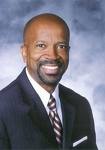Ecclesiastical Immunity
Last month, a trial court in Connecticut applied the ministerial exception to dismiss a defamation claim brought by a charitable organization against the Catholic bishop of Connecticut. In brief, the vicar of a Connecticut parish had organized a charity in his native Tanzania and, among other things, raised funds for it from his congregation. The Bishop apparently came to believe that the charity was beset by financial irregularities and, after first ordering the priest to stop raising money for it, removed him as vicar. The Bishop then sent a letter and spoke to parishioners telling them that the charity was ineffectively managed and engaged in questionable financial practices.
The priest’s action against the diocese (alleging, among other things, racial discrimination) was dismissed based upon the ministerial exception. No surprise there.
The charity then sued the Bishop for tortious interference and defamation. As noted above, these claims were also dismissed based upon the ministerial exception. The exception has been applied in contexts other than claims based upon employment. In my home state of Wisconsin, for example, it has been applied to claims for the negligent hiring, retention and supervision of priests who committed sexual abuse.
But should it be applied here?

